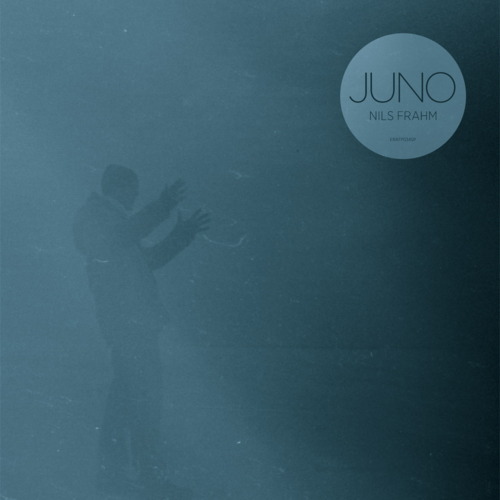Genre: Ambient, Drone, Neo Classical, Experimental
Label: Gizeh Records
Having met while performing in Europe with their respective bands, Richard Knox, one-half of ambient-modern classical duo Glissando and sometime live member of Sleepingdog (and Gizeh Records manager), and Frederic D. Oberland, founding member of the experimental collective FareWell Poetry and soundtrack composer, soon after decided to collaborate on an album and did so in accordance with a few simple guidelines: first, to imagine the album as representative of, in their own words, “a polar journey to the ends of the earth through the Arctic Sea”; to augment their own playing with that of others (string players Angela Chan and David Ramsay appear, as do Elly May Irving and Matt Clark, who contributed choir and ghost narration to the project); and to record the project in a church. No carefree cruise trip, The Rustle of the Stars instead focuses on the darker end of the polar expedition experience, one that finds madness and terror setting in over the course of a long journey that brings with it more than its fair share of hopelessness, anxiety, and thoughts of disaster. The first indication of the project's special character is the album title itself, The Rustle of the Stars being a reference to a phenomenon that occurs 450 km from the Arctic Circle and that specifically refers to a barely audible noise produced when the draught from a human breath generates collisions among ice micro-crystals in the air. But, of course, the album rewards one's attention for reasons that go far beyond an imaginative album title and concept.
Begun at their respective homes in Leeds and Paris, Knox and Oberland drew upon a wealth of instrumental sounds (electric guitar, bowed glockenspiel, and field recordings for Knox, and piano, electric guitar, field recordings, harmonium, dulcimer, and analog electronics for Oberland, to name just some of the materials used) in fashioning the initial sketches for the collaboration and then solidified them when they convened two months later in Leeds to record in the St Margaret of Antioch Church. Regardless of whether the piece in question features large, rolling swathes of rumble, guitar textures, and soaring strings (“Mist”) or places delicate pianistics against a sombre backdrop (“Le Passage du Nord-Ouest”), the material is elegiac and dramatic ambient-classical in style and features a heavy emphasis on strings and electric guitar. It's also at times desolate, with the music evoking the limitless and barren expanses of icy terrain and often cloaked in a shroud of haunting gloom. In certain moments, The Rustle of the Stars' material is sometimes so stylistically similar to FareWell Poetry's Hoping for the Invisible to Ignite it could be mistaken for new work by the band (e.g., “Sea of Bones” and “A Divide”); certainly the inclusion of a Super 8 projector's clatter (courtesy of FareWell Poetry member Jayne Amara Ross) on “The Wreck of Hope” collapses the distance separating the outfits even more, as does the track's sweeping guitar-laced atmospherics. Generally speaking, anyone spellbound by FareWell Poetry's recent Hoping for the Invisible to Ignite may very well find him/herself equally captivated by The Rustle of the Stars.
Review from Textura








